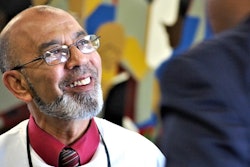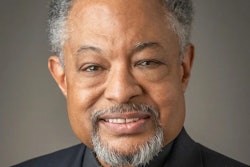For most, pursuing a college education is a youthful endeavor reserved for students 35 years of age and under, however, researchers at the American Council on Education (ACE) are trying to change that. In their most recent report, “Framing New Terrain: Older Adults and Higher Education,” ACE examines the obstacles that prevent older adult participation in higher education and seeks to remedy them.
The report, based on literature of leading analysts in the field, concluded that older adults, ages 55 to 79, are living longer and pursuing new postsecondary goals including career retooling and enrolling in college for the first or fifth time. However, colleges and universities “have yet to catch up with the burgeoning demand for new learning options, especially programs for career transitions.
In 1950, the average life expectancy was 68 years of age. Most people worked their whole lives and died before they were able to enjoy their golden years.
Today, however, the average retirement age is 62 and life expectancy is 78 and rising. Add to this, advances in health care and the growing affluence of older adults and you have a slight increase in older adults with a sincere desire to pursue educational endeavors, experts say.
The report reveals that the biggest challenge that older adults face as they attempt to re-enter the arena of higher education is funding. For those living on fixed incomes, the financial barrier becomes extremely difficult. While tuition reimbursements may benefit those in the workforce, countless others do not.
“Simply finding what types of financial assistance is available to you can be a challenge for some older adults. Depending on what your goals are, there are several things in the works,” said Mary Beth Lakin, associate director of special projects learning at ACE. “There are community college grants available for older adults that work, and senior fee waiver programs at colleges and universities in certain areas, for retired adults.”
Race and ethnicity also prove to be barriers to higher education for older adults for various reasons. Minorities are more likely to experience poor health and inadequate medical care throughout their lives than their White counterparts.
In addition to health issues, older minorities also have lower levels of income, educational attainment, and workforce participation, according to the Federal Interagency 2006 report Ageing Related Statistics.
Structural barriers such as scheduling, and transportation continue to stymie efforts to make lifelong learning possible for older adults especially minorities. An AARP survey found that 25 percent of African-Americans aged 50 and older frequently or occasionally missed activities due to the lack of transportation.
The fast-paced technological environments of today’s modern colleges and universities also proved to be a challenge for older adults. Many found themselves intimidated by younger more technologically savvy students.
“This type of intimidation can happen at any age. A number of colleges and universities offer peer-mentoring programs to get older adults up to speed. There are also off-campus organizations that offer technology help to those who need additional assistance,” Lakin said.
Later this month, ACE will hold focus groups on older adults in hopes of adding to their analysis of why some older adults, including members of underrepresented groups, don’t participate.
–Michelle J. Nealy
There are currently 0 comments on this story.
Click here to post a comment
© Copyright 2005 by DiverseEducation.com





















